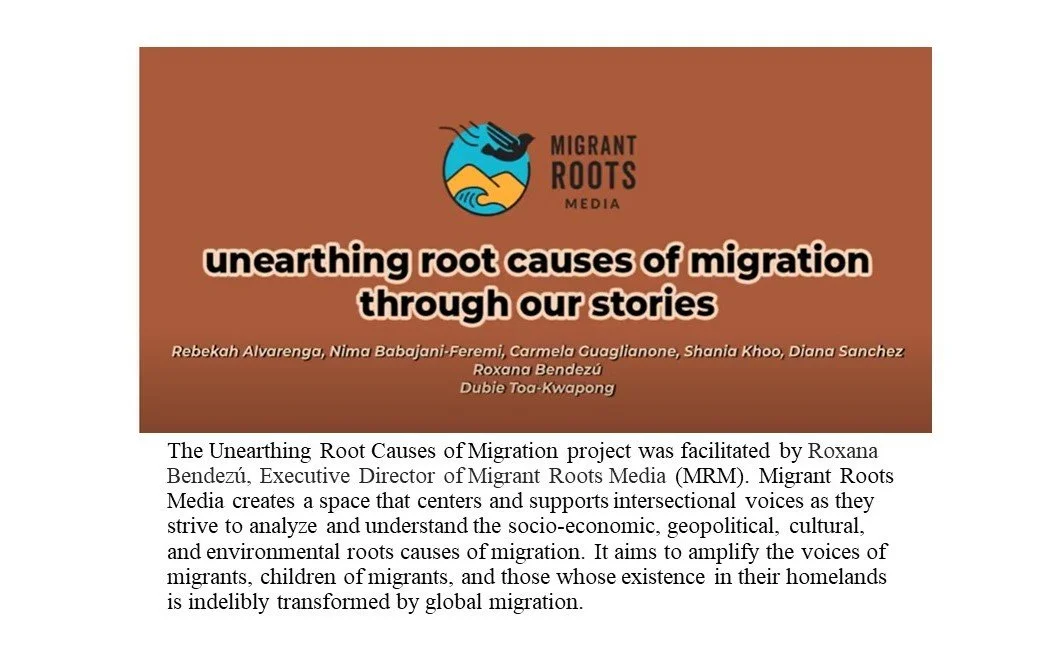Studying Across Cultures: Research Articles
Entire fields of study dedicated to explanations of culture, but even at a cursory level we can see that culture involves shared ways of thinking, perceiving, and understanding. Whether the context is a community, organization, or online discussion group, there are insiders who share those ways and outsiders who do not. It is unlikely that researchers can carry out our studies without venturing into a different culture! How can we proceed respectfully, gain access to people or materials, and build trust as needed to carry out the study in a respectful manner? This collection of open-access articles offers some examples and recommendations you can adapt to your own research plans.
Aguinis, H., Villamor, I., Lazzarini, S. G., Vassolo, R. S., Amorós, J. E., & Allen, D. G. (2020). Conducting Management Research in Latin America: Why and What’s in It for You? Journal of Management, 46(5), 615–636. https://doi.org/10.1177/0149206320901581
Abstract. We make the case that conditions and timing are right and, despite sAbstract. ome challenges, there are many benefits to conducting management research in Latin America. Some of these conditions include an upward trend in the productivity of Latin American researchers, increased collaboration between researchers in Latin America and those in other regions, and societal, cultural, and economic characteristics that make the region an ideal “natural laboratory” to build and test management theories. Demonstrating that our arguments are not just about potential but are founded in reality, we offer a selective summary of recent research conducted in Latin America that made important contributions to micro and macro management domains and theories. These include (a) leadership; (b) small and family businesses; (c) entrepreneurship; (d) social inclusiveness, inequity, and vulnerable populations; (e) strategy and competitive dynamics in natural resource industries; (f) strategy in unstable macroeconomic contexts; (g) public (industrial) policies and business development; (h) hybrid public-private collaborations; and (i) social enterprises and blended social and economic value creation. We also describe opportunities for future research in these domains. Finally, we offer practical and actionable advice on how to address typical challenges encountered when conducting management research in Latin America. Solutions apply to those residing inside and outside of Latin America and include, among others, identifying universities with a research-oriented career path, recognizing credible university rankings and their impact, and capitalizing on local contexts to generate high-quality research. We hope our article will serve as a catalyst for future management research in Latin America.
Bayeck, R. Y. (2021). The Intersection of Cultural Context and Research Encounter: Focus on Interviewing in Qualitative Research. International Journal of Qualitative Methods. https://doi.org/10.1177/1609406921995696
Abstract. This article discusses the influence of the cultural context on the interview process. With literature demonstrating the role of spatial context on interviews, the article contends that similar consideration should be given to cultural contexts of research studies. Focusing on the cultural context where the interview takes place and the interactions during the interview can help researchers understand and analyze interview material. Interview forms such as conversation/interview bombing emerged from the interaction of cultural context with the interview process. This points to the need for qualitative researchers to explore how the cultural context shapes their research encounter. Such focus will expand the literature on the forms of interview emerging from the intersection of cultural context and interviewing as well as research on spatiality and interview.
Connelly, R., Gayle, V., & Lambert, P. S. (2016). Ethnicity and ethnic group measures in social survey research. Methodological Innovations, 9. https://doi.org/10.1177/2059799116642885
Abstract. This article is a review of issues associated with measuring ethnicity and using ethnicity measures in social science research. The review is oriented towards researchers who undertake secondary analyses of large-scale multipurpose social science datasets. The article begins with an outline of two main approaches used in social surveys to measure ethnicity, the ‘mutually exclusive category’ approach and the ‘multiple characteristics’ approach. We also describe approaches to the use of ethnicity measures in cross-national comparative research. We emphasise the value of sensitivity analyses. We also encourage researchers to carefully consider the possible relationships between ethnicity and other important variables in order to avoid spurious interpretations of the effects of ethnicity.
Datta, R. (2018). Decolonizing both researcher and research and its effectiveness in Indigenous research. Research Ethics, 14(2), 1–24. https://doi.org/10.1177/1747016117733296
Abstract. How does one decolonize and reclaim the meanings of research and researcher, particularly in the context of Western research? Indigenous communities have long experienced oppression by Western researchers. Is it possible to build a collaborative research knowledge that is culturally appropriate, respectful, honoring, and careful of the Indigenous community? What are the challenges in Western research, researchers, and Western university methodology research training? How have ‘studies’ – critical anti-racist theory and practice, cross-cultural research methodology, critical perspectives on environmental justice, and land-based education – been incorporated into the university to disallow dissent? What can be done against this disallowance? According to Eve Tuck and K Wayne Yang’s (2012) suggestion, this article did not use the concept of decolonization as a substitute for ‘human rights’ or ‘social justice’, but as a demand of an Indigenous framework and a centering of Indigenous land, Indigenous sovereignty and Indigenous ways of thinking. This article discusses why both research and researcher increasingly require decolonization so that research can create a positive impact on the participants’ community, and conduct research ethically. This article is my personal decolonization and reclaiming story from 15 years of teaching, research and service activities with various Indigenous communities in various parts of the world. It presents a number of case studies of an intervention research project to exemplify the challenges in Western research training, and how decolonizing research training attempts to not only reclaim participants’ rights in the research but also to empower the researcher. I conclude by arguing that decolonizing research training creates more empathetic educators and researchers, transforming us for participants, and demonstrating how we can take responsibility for our research.
Jackson, S., Ho, P. S. Y., & Na, J. N. (2017). A tale of two societies: The doing of qualitative comparative research in Hong Kong and Britain. Methodological Innovations, 10(2). https://doi.org/10.1177/2059799117703117
Abstract. This article explores the challenges and opportunities for methodological innovation arising from an exploratory, cross-national, qualitative study of women’s lives in Hong Kong and Britain. We begin by briefly outlining the aims of our study and its original research design, based on life history interviews with young adult women and their mothers in each location. We then turn to a discussion of how this was modified as we recruited participants and conducted the interviews, including the use of vignettes. We aim to be transparent about some of the problems of implementing a symmetrical approach to generating qualitative data in very different socio-cultural settings compounded by the practical difficulties of geographical distance between team members. We argue for a flexible approach that takes account of local cultural sensibilities rather than trying to follow rigidly identical procedures, recognising also that, in any qualitative research team, there will be differences in approach that affect the data produced. We highlight some of the insights yielded by the problems we encountered and, in particular, an accidental innovation that occurred through an ad hoc decision to conduct focus groups with the young women, which we call ‘cross-cultural data feedback’. This innovation involved our participants in contributing to cross-cultural comparison and also brought taken-for-granted assumptions in each setting into sharp relief, as well as sensitising us to issues that proved important in analysing our data. This leads us to raise issues of interpreting and analysing data from differing socio-cultural locations and translating between cultures. We conclude with some recommendations including the potential for the future development of our method of cross-cultural data feedback.
Nasie, M. (2022). The respect pyramid: A model of respect based on lay knowledge in two cultures. Culture & Psychology. https://doi.org/10.1177/1354067X211066819
Abstract. Respect is a common social concept, yet how lay people define it has not been thoroughly investigated. This study used a grounded theory approach, using in-depth interviews, to conceptualize respect according to lay knowledge. 40 participants from two cultures in the Middle East—20 Jewish Israelis and 20 Palestinians—reported how they define respect (Kavod in Hebrew and Ihtiram in Arabic). The findings define respect as a complex, multidimensional concept. Based on the findings, a respect pyramid model was developed, which includes four dimensions: avoiding disrespect, deserved/normative respect, conditional respect, and considerate respect. Each dimension indicates an increase in aspects that make the respect less conditional and more intrinsic, while requiring higher sensitivity and greater effort. The implications of the respect pyramid for relationships and the cultural differences regarding definitions of respect are discussed.
Pérez-Cornejo, C., de Quevedo-Puente, E., & Delgado-García, J.-B. (2021). The role of national culture as a lens for stakeholder evaluation of corporate social performance and its effect on corporate reputation. BRQ Business Research Quarterly. https://doi.org/10.1177/23409444211007487
Abstract. Studies have shown that corporate social performance (CSP) is an antecedent of corporate reputation, acting as a signal that affects stakeholders’ perceptions and expectations about a firm’s future behavior. However, the perceptions, expectations, and interests of stakeholders may be affected by external factors, such as national culture, which shapes their beliefs about what role companies play in society. Drawing on institutional theory and Hofstede’s cultural dimensions, we analyze how stakeholders’ national culture moderates the relationship between CSP and corporate reputation. The results of the analysis of an international sample for the period 2010 to 2016 show that low individualism (i.e., collectivism), low masculinity (i.e., femininity), low power distance, and low uncertainty avoidance intensify the positive relationship between CSP and corporate reputation.
Richardson, E. Z. L., Allison, K. R., Teleguario, H., Chacach, W., Tum, S., Gesink, D., & Berry, A. (2017). “Taking Care” in Intercultural Research: Lessons From a Guatemalan Family Planning Study. International Journal of Qualitative Methods. https://doi.org/10.1177/1609406916680823
Abstract. Methodological and ethical aspects of intercultural research are frequently discussed in the literature. However, rarely are detailed examples given or practical suggestions offered, particularly in relation to qualitative enquiry. Drawing on global health qualitative research by an international team with indigenous women in Guatemala about access to family planning, this article highlights consequences of different research designs and implementation strategies and practices. We used the constant comparison method for analysis and developed a code for portions of interviews or content which might have been omitted had the research been conducted differently. These applied examples are used to illustrate the gaps and misinterpretations possible in intercultural research and how critical it is to involve a local team early and throughout the study in such stages as: preparing research instruments, recruitment, and conducting interviews; multilingual interviewing, transcription, and team analysis; and reporting and dissemination. International research has been likened to an extractive industry due to the propensity of scholars to conduct research then publish only in English, essentially extracting knowledge in a way that is inaccessible to those in the country where research was conducted. Practical and ethical implications are highlighted for those conducting, funding, and reviewing intercultural research, to ensure that research does not become the latest extractive industry.
Schembri, N., & Jahić Jašić, A. (2022). Ethical issues in multilingual research situations: a focus on interview-based research. Research Ethics. https://doi.org/10.1177/17470161221085857
Abstract. Interview-based research in multilingual situations can present researchers with specific ethical challenges relating to language-based power play, data handling and presentation. Studies indicate favouring the L1 (first language) as an interviewing language may produce better quality data, but external pressures can favour English as the dominant research language. This article examines researcher perceptions and experiences of the ethical consequences of language choice and the practical issues involved. Interviews were conducted with five European researchers working on an interview-based project with experiences of diverse interviewing scenarios. The four moral principles of respect for autonomy, justice, beneficence and non-maleficence were used as a framework for analysis. The analysis revealed a nuanced picture of ethical issues in both L1- and English-oriented scenarios. This included potential misrepresentation and deculturalisation of the data in the former, and language-based power asymmetries in the latter. The findings highlight the importance of documenting ethics-related methodological details of language use, and advocates publication practices favouring the inclusion and foregrounding of L1 data.
Schoorman, D., & Bogotch, I. (2010). What is a critical multicultural researcher? A self-reflective study of the role of the researcher. Education, Citizenship and Social Justice, 5(3), 249–264. https://doi.org/10.1177/1746197910382257
Abstract. Critical multiculturalism and social justice have emerged in educational contexts as primarily pedagogical concerns, confined to the processes of teaching and learning. This article raises the question about the application of these principles to the research process. Through a critical self-reflection on researcher roles and practices, this article highlights four emergent characteristics of the multicultural/social justice researcher: the commitment to a common good; the re-definition of the researcher—researched relationship; the interrogation of the traditional roles, norms and power dynamics of academic research and researchers; and the merging of the tripartite distinctions of teaching, research and service in the role of the professor. These serve as a starting point for dialogue on the re-conceptualization of the role of the multicultural/social justice researcher.
Sowatey, E. A., Nyantakyi-Frimpong, H., Hussey, L. K., Annan-Aggrey, E., Pinkrah, A., & Arku, G. (2021). Reflections from Cross-Gender Fieldwork Experiences in Open Markets in Ghana. International Journal of Qualitative Methods. https://doi.org/10.1177/16094069211053102
Abstract. Fieldwork can be an enjoyable academic adventure producing lifelong experiences of excitement and a sense of academic accomplishment. However, it can be an equally frustrating undertaking, especially when carried out in ‘unfamiliar’ environments. This paper adds to the growing number of studies about fieldworkers’ experiences by reflecting on the complexities involved in the process and proffering ways to respond to them. We share our perspectives as three adult African males conducting research in a predominantly female space in two informal markets in Accra, Ghana. To do this, we engage with five issues related to fieldwork: preparing to enter the field; negotiating access; handling interviews; dealing with ethical dilemmas; and exiting the field. We found that being male is not a barrier to conducting research in a predominantly female space. The success of our fieldwork was a product of our ability to adapt, be creative, appreciate our inadequacies, learn quickly and also take some practical and common-sense steps. Our hope is that the insights shared in this paper will serve as a compass for prospective fieldworkers.
Trepte, S., Reinecke, L., Ellison, N. B., Quiring, O., Yao, M. Z., & Ziegele, M. (2017). A Cross-Cultural Perspective on the Privacy Calculus. Social Media + Society. https://doi.org/10.1177/2056305116688035
Abstract. The “privacy calculus” approach to studying online privacy implies that willingness to engage in disclosures on social network sites (SNSs) depends on evaluation of the resulting risks and benefits. In this article, we propose that cultural factors influence the perception of privacy risks and social gratifications. Based on survey data collected from participants from five countries (Germany [n = 740], the Netherlands [n = 89], the United Kingdom [n = 67], the United States [n = 489], and China [n = 165]), we successfully replicated the privacy calculus. Furthermore, we found that culture plays an important role: As expected, people from cultures ranking high in individualism found it less important to generate social gratifications on SNSs as compared to people from collectivist-oriented countries. However, the latter placed greater emphasis on privacy risks—presumably to safeguard the collective. Furthermore, we identified uncertainty avoidance to be a cultural dimension crucially influencing the perception of SNS risks and benefits. As expected, people from cultures ranking high in uncertainty avoidance found privacy risks to be more important when making privacy-related disclosure decisions. At the same time, these participants ascribed lower importance to social gratifications—possibly because social encounters are perceived to be less controllable in the social media environment.














SAGE MethodSpace partnered with Prepared to Zoom into the meeting and hear selected delegates provide statements on the difficulties of research during global crises and suggestions on how stakeholders can work together better in the future. View the recording!